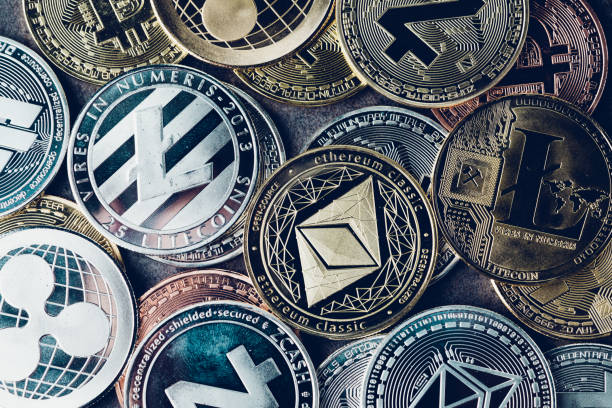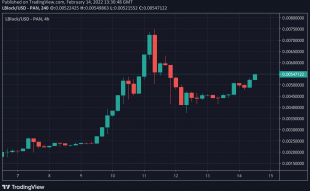Join Our Telegram channel to stay up to date on breaking news coverage
The Ethereum network has recorded a major downside in the transaction fees. The transaction fees have been downhill since January 10. The average and median fees reached $14.17 and $5.67, respectively. This is the lowest level in the transaction fees since September 2021.
Ethereum transaction fees decline
The average transaction fees on the Ethereum network reached an all-time high of $70.83 on May 2021. According to Blockchair, this metric has since dropped, and last month, it was at $53.03. The fees have been on a 73.3% downtrend over the past month to $14.17.
The median transaction fees have also dropped significantly, having recorded an 81.02% drop from the $29.88 recorded in January. The current median transaction fee of $6.26 is at its lowest level in six months.
In addition, the transaction count on the Ethereum network has also seen a notable decline. The transaction count currently sits at levels that were last recorded in 2019. According to Blockchair, the transaction count on the ethereum blockchain has dropped from 36,851,128 to 14,574,808 in just one month. This represents a 60.44% drop.
This is the largest drop in transaction count that the Ethereum network has recorded within one month.
Buterin’s proposal to reduce the transactional calldata gas cost
In November last year, Ethereum’s co-founder, Vitalik Buterin, issued a proposal wherein a new limit would be set on the overall transaction calldata in a bloc. This move would drop the transaction calldata gas cost on the Ethereum network.
Buterin noted that this proposal would aid in lowering the high transaction fees over the network. It would also reduce the time needed to deploy data sharding on the network. Buterin added that “a short-term solution to further cut costs for rollups and to incentivize an ecosystem-wide transition to a rollup-centric Ethereum is desired.”
Buterin said that the other alternative to solving the problem was to lower the gas cost parameters without adding a limit to the block size. However, he added that this alternative posed a security concern.
“Some think layer 2 fees on ETH are too high because each byte of data a rollup uses cost 16 gas. To lower fees, the gas cost could be reduced to 3. This should be a large benefit, with 5x lower fees. However, in the long term, this may mean blocksize is a new network constraint,” he added.
Recently, an ETH miner validated a block on their own and received around $540,000 in rewards. This is a large increase from the 4 ETH reward per block.
Your capital is at risk.
Read more:
Join Our Telegram channel to stay up to date on breaking news coverage


